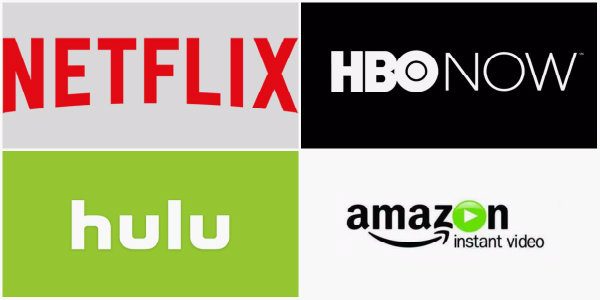I’m currently in the middle of binge-watching the Kevin Spacey/David Fincher created series House Of Cards on Netflix, and it really is something special. Being an avid movie fan, a character-driven plot is almost unheard of nowadays in the film industry (unless you’re the late Anthony Minghella: see here and here.)
Watching House of Cards, I’m amazed at how in depth and complex these characters can be, and how the show runners are able to create multiple storylines while simultaneously keeping you, as the viewer, interested. To develop characters to the extent that you can in television is something to be commended, and I’m left wondering: where are the movies that do this?
We’ve tackled this subject on Film Inquiry before (see Jay Ledbetter’s article here), but I always think it’s an interesting topic to bring up every so often; and with the Emmy Awards that have recently passed, what better time is there to reopen the discussion?
The Strange Phenomenon That Is Binge-Watching
I’ll admit it: I do binge-watch. There’s something so convenient about having the ability to watch an incredible show like Mad Men (which was viciously robbed at the Emmy’s) in about two to three days. It’s every media lover’s dream. In an interview at the Edinburgh Television Festival in 2013, Kevin Spacey had this to say about the habit:
“If they want to binge then we should let them binge…..give people what they want, when they want it, in the form they want it in, at a reasonable price, and they’ll more likely pay for it rather than steal it.”
Now, that may sound amazing to us fans, but on the opposite end of the spectrum it’s more or less a death sentence for most major movie theatre chains.
Earlier this year, it was reported that movie theatre attendance has been steadily dropping – but why? From my personal experience, the actual act of getting dressed, looking nice, and putting in effort for a film that may or may not live up to your expectations is disheartening. I’m all for watching films in their original form on the big screen, but I’m not always necessarily in the mood to get all dolled up. And with the invention of at-home streaming devices such as Netflix, HBO, and Amazon Prime, it’s no wonder why most would choose a night in rather than an evening at the movies.
HBO, Netflix, and Hulu, Oh My!

With great content comes great responsibility, and that responsibility falls on a variety of media outlets. Amazon Prime, HBO, AMC, and Netflix are some of the many services that have provided us with spectacular shows like Mad Men, Game of Thrones, House of Cards, Transparent and a multitude of others. These are the shows that we love to discuss around the water cooler at 10 in the morning, and they are the shows we get into heated arguments about at the dinner table. As a society we love to feel connected.
In the digital age that’s all about staying connected, having something to talk about week in and week out with your friends is a true blessing. It gives you a sense of being together, even if you’re miles apart. Ask yourself: how many times have you live tweeted an episode of your favorite show to gauge the reactions of your friends/followers? I’ve done it plenty of times; you get a true sense of elation whenever you find a kindred spirit that thinks that a certain character shouldn’t have been killed off, or that the protagonist should’ve made this decision instead of that one. That’s why people love the easy accessibility of streaming services; it gives you a sense of togetherness all at a click of a button.
Why Most Actors Prefer Television
On to the real reason why we have this discussion in the first place: comparison. As movie lovers, we always look to see if any television show can surpass our true love, and in modern times it appears to do so. I was recently watching an interview with Jane Fonda and recent Emmy winner Viola Davis, and they were discussing how more movie actors are making the jump to television. There was something in particular that Ms. Fonda said that caught my interest. She went on to say:
“Television has gotten so good….. that’s where all the good writing is.”
This sentiment has been echoed before. It’s nothing new, and we as audiences know this. In television you have the opportunity to flesh out characters much farther then you can fathom on the silver screen. As an actor, you would have not only job security (unless you’re on Game of Thrones), but you also have the creative freedom to nurture and develop a character in a way that you may not necessarily be able to do on a movie set. On the flip side, as a viewer, there’s nothing better than seeing a compelling story unfold before you’re eyes, and I think that should be appreciated.
Television: The New Frontier?
I love movies, and sometimes it’s hard to admit it but I think television is taking over. As I said earlier, television has the ability to stretch out plotlines, develop characters, and provide endless hours of entertainment due to on-demand streaming services. With show runners continuing to push boundaries, it’s only a matter of time until the film industry eventually plays second fiddle to an industry they once called ‘little brother’.
What do you think? Share your thoughts in the comments.
(top image Mad Men – source: AMC)
Does content like this matter to you?
Become a Member and support film journalism. Unlock access to all of Film Inquiry`s great articles. Join a community of like-minded readers who are passionate about cinema - get access to our private members Network, give back to independent filmmakers, and more.